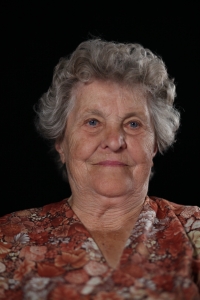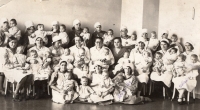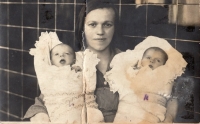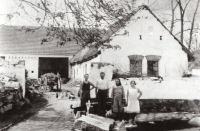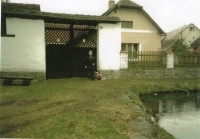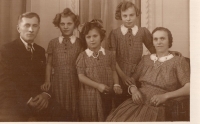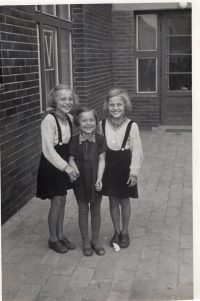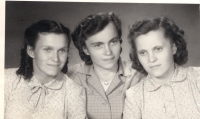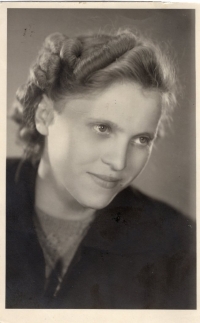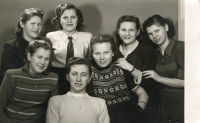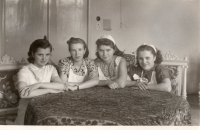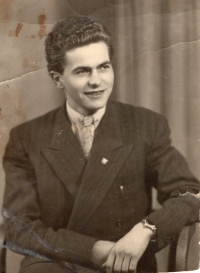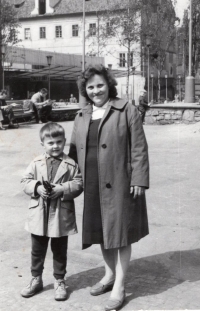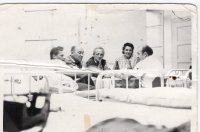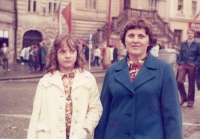My life reads like a trashy novel

Download image
Marie Machačová, née Kušková, was born, along with her twin sister Libuše, on the 14th of April in 1931 in Brno. Her mother Kristýna sent her and her twin sister in a basket down the river due to poverty. Marie would stay in a children’s home and with relatives in Southern Bohemia. In 1933, her father, Václav Kuška, managed to reassemble the family and all of them moved to Prague. Since early age, Marie had to suffer violence from both her mother and her sister Libuše. They had another sister, Věra, who suffered from a long-term illness and spent most of her life in institutions. In 1945, Marie witnessed bombing of Prague. One year later, the family moved to Cheb. In her youth, Marie worked on various positions in Cheb, Varnsdorf and Mariánské Lázně. After experiencing an unfulfilled love with Josef Dragoun, she married Oldřich Machač in 1955 and moved to Olomouc. They had three children together, Oldřich, Irena and Jana. In 1968, she got involved in a dangerous accident with the Soviet soldiers. After her maternity leave, she worked at the Czechoslovak State Railways. In 1986, she retired and shortly after, her husband died. In 2001, she moved into a retirement home in Olomouc.
